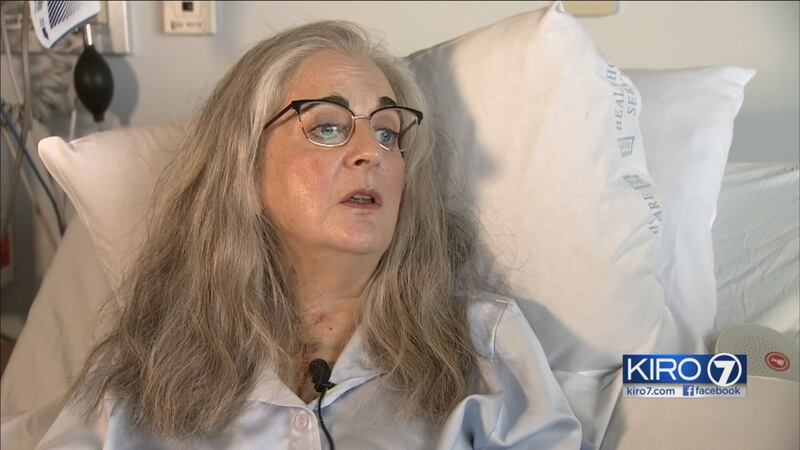In the late 1980s while living on Seattle’s Capitol Hill, Victoria Doyle knew something was seriously wrong.
She couldn't run, had strange heart rates and lived in fear of passing out, especially while driving.
“I really thought I’d be dead by 30,” said Doyle – who now lives in Browns Point near Tacoma. “I knew there was something wrong for a long time.”
Her doctors at the University of Washington Medical Center eventually diagnosed cardiomyopathy and put Doyle on the list for a heart transplant, which was performed by Dr Edward Verrier nearly three decades ago.
“Victoria was very sick back in 1991,” Verrier remembered. At the time, he expected the transplant to extend Doyle’s life “probably between five and 10 years.”
Doyle's transplanted heart lasted 27 years.
According to UW Medicine, living 27 years with a transplanted heart puts Doyle in the top 5% of organ longevity, nationwide. The U.S. average for survival rates is 12.5 years after transplant. UW Medicine’s patients typically survive 16 years.
UW cardiologist Dan Fishbein has been treating Doyle for three decades. “We were really babies in 1991. We didn’t have a lot of experience. There wasn’t a lot of experience nationally,” Fishbein said.
Both Fishbein and Verrier still work for UW Medicine, and still treat Doyle. At a routine check-up in March, Fishbein discovered that Doyle's transplanted heart was failing.
Her health declined rapidly.
So Doyle was put on the list -- again -- for another donated heart.
For the second time in her life, she won the medical lottery and received a donated heart on July 30. She also received a kidney from the same anonymous donor.
“There’s no one more grateful than a transplant recipient who wakes up every morning and knows that this was something that was offered to them, and it’s a part of going forward,” Doyle said of her two lifesaving transplant surgeries.
Doyle's doctors believe she's been such a successful transplant recipient because of her commitment to following post-operative instructions to the letter, including faithfully taking medications she will need -- for life.
“At least twice a day, forever. There’s no vacation from it," she said.
Doyle and her doctors also credit organ donors -- and their families -- who make such success stories possible.
“This gift is really a remarkable act of generosity from families that have had an acute loss,” Fishbein said.
Doyle said she treats her donated hearts “very respectfully, very gratefully.”
“You know that you’re being given something with the expectation that you will take care of it because it’s valuable and precious.”
Doyle added, “I can’t believe that I’m 61. I never thought I would be here, to be 61 and have a brand new opportunity is like being handed the world on a plate.”
More news from KIRO 7
- Amazon hiring more than 200 work-from-home positions
- Once again, Thurston County Jehovah's Witnesses hall targeted in attack
- Police: 5-year-old girl reportedly touched by stranger in restroom at Edmonds park
- Oregon K-9 saved by Narcan after exposure to contraband heroin in jail
- Do you have an investigative story tip? Send us an email at investigate@kiro7.com
Cox Media Group








